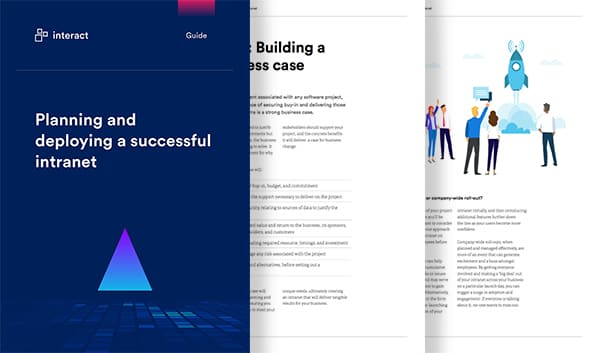8 future tech trends that will change tomorrow’s businesses
If you don’t know your ‘5G’ from your ‘Chatbots’, this should get you up to date on all things futuristic and provide a few tips on how to prepare your business for the world of tomorrow, starting now.
Although the reality check that the 2020’s are a mere 3 years away might cause concern about your next birthday milestone, the same cannot be said for some upcoming technology trends. It’s worth considering how the technological revolutions of the not-so-distant future will impact your business.
Cast your mind back to a decade ago. We saw the rise of smartphones, social media and the full utilization of ‘web 2.0’. Looking back on the last 10 years, we see technology’s potential to transform our lives. With that in mind, what might the next 10 years might bring? What are the key future trends that you should be looking out for?
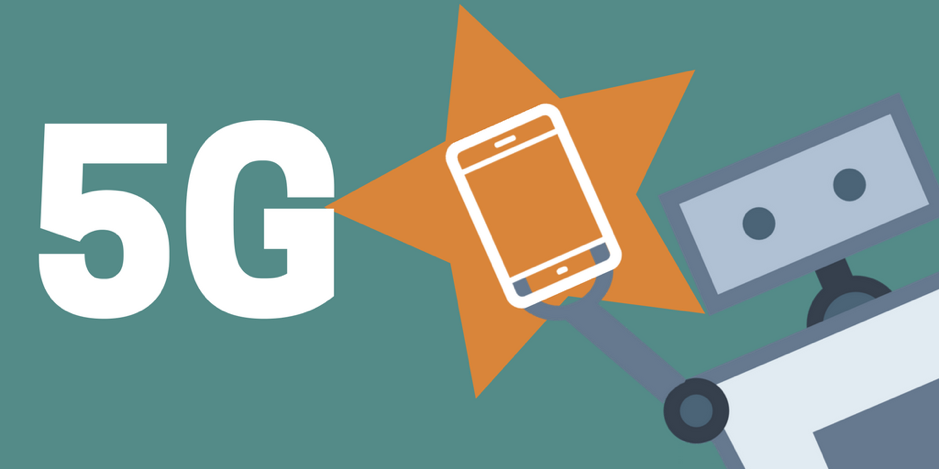
#1 5G
Many of us are familiar with ‘3G’ and ‘4G’ on our devices, and we can expect an inevitable jump to ‘5G’ coming soon. This change, however, promises far more than an arbitrary number change.
Quick history lesson: The ’80s saw ‘1G’ allowing for the first truly mobile telecommunications (think brick phones), with ‘2G’ in the ’90s upping the game from analogue to digital, by sending and receiving small media files on the go. The 2000’s brought about ‘3G’, allowing for video calls, location services and mobile access to the internet for the first time. As we watched smart phones take over the globe throughout the 2010’s, ‘4G’ pushed things into high definition with faster speeds and more comprehensive data access.
You will notice an upgrade every 10 years or so. Given that an update is on the horizon, here’s why the next generation of mobile networking will matter to you:
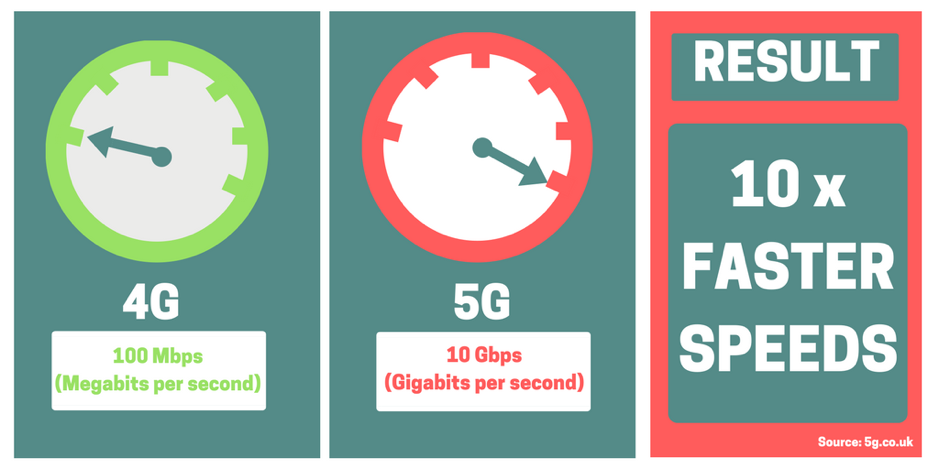
5G has been reported to hold theoretical speeds of 1-10Gbps. To put that into context, 5G could be 1000 times faster than 4G’s 100Mbps. Moreover, 5G will operate in a higher frequency spectrum than previous networks, with government proposals citing 90% national coverage within 4 years of its introduction. 1ms latency means virtually instantaneous response times to the estimated 50-100 billion connected devices, allowing for capabilities unlike ever before.
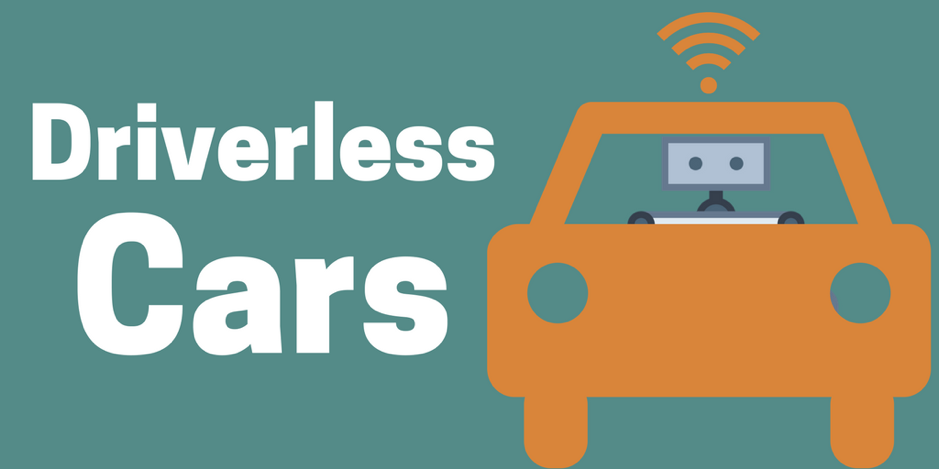
#2 Driverless cars
5G drastically pushes the concept of true driverless cars as a very realistic reality. Always connected ‘smart’ cars would allow for leisure, business and transportation journeys to be completely autonomous.
Fancy eating your breakfast during your commute to work? How about sleeping comfortably through the night as your travel to a destination 100 miles away? 5G also lets vehicles communicate with each other, virtually eliminating traffic jams and vastly minimizing road accidents. This opens the door for companies to reduce lost time in travel and commuting, prompting a complete re-think for business operations.

#3 Automation
The internet of things is the concept of everyday items being connected to and controlled by the internet. 5G would expand on this theory by allowing for advanced controllability, more connected devices, smarter payment methods and advanced wearable devices.
On top of automation possibilities, low powered 5G devices are proposed to have a 10-year battery life. Data produced by these devices could allow marketers to develop advanced customer insights, where intelligent tracking, trends and targeting methods could help reach the right customers more easily. Early adopters of these concepts are Princess Cruises “Ocean Medallion“and Fitness Firsts “I-beacon“.
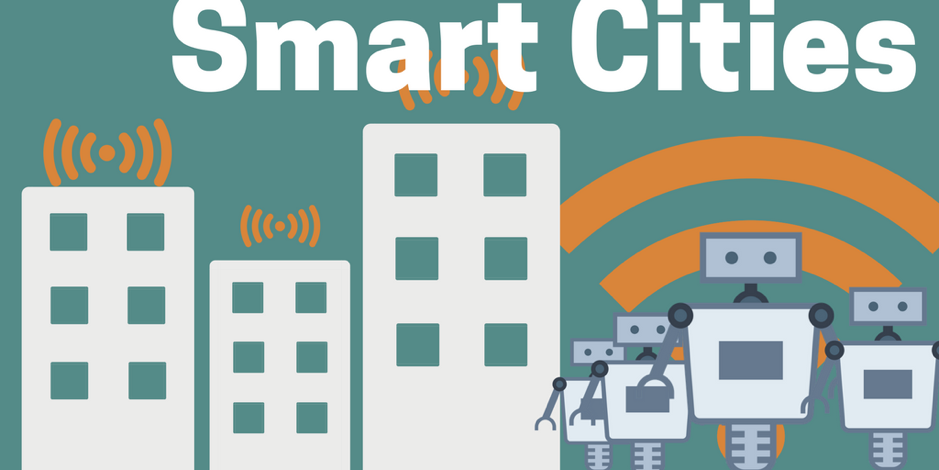
#4 The rise of the smart city
Just as 4G transformed phones into ‘smartphones’, 5G holds the ability to change cities into ‘smart cities‘. This idea of a fully connected society is something which will likely bring about huge changes to the way people and businesses operate. Offices and homes will become “smart“, transforming the way your internal staff and remote employees travel, work, and connect. Planning how your business could fully utilize 5G will put you a step ahead of the competition in the years to come, as it’s an inevitable destination we’re all heading toward.
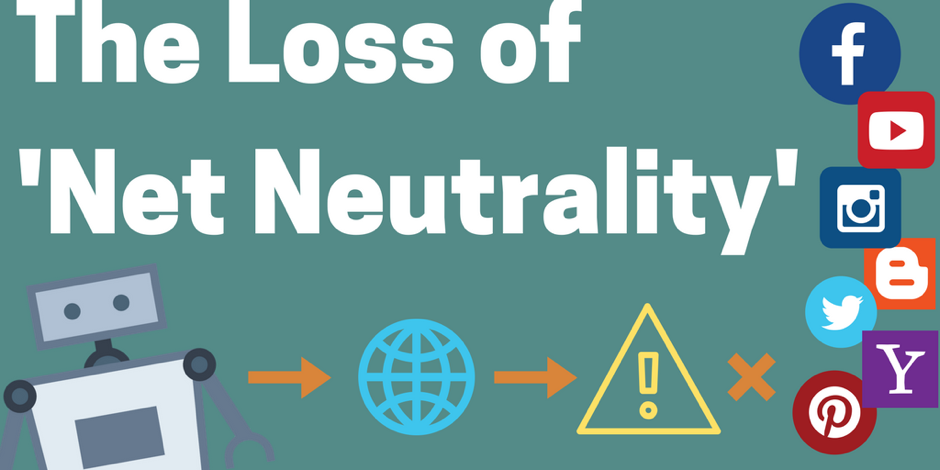
#5 Preparing for the potential loss of net neutrality
Unfortunately, not all future trends are positive. You might have heard about the recent protests held by various industry big hitters across the web debating the issue of ‘net neutrality’. But what is it, and what impact could its loss have on your business?
Currently in the US, laws exist to prevent internet service providers from favoring, blocking or throttling access to websites. The rules of ‘networking neutrality’ were established as a means of stopping ISP’s from charging their users for accessing selected online content and allowed for a level playing field across the internet.
After being approached by ISP companies in 2015, the FCC ruled in favor of retaining net neutrality, hailing a victory for the 3.7 million people who wrote to the FCC advocating the issue.
However, in 2016 various telecoms companies announced that they’re bringing the issue to the supreme court, once again leaving the threat of losing a fair and open internet in the balance. This pattern highlights a disturbing trend for a potential future of the internet. If passed, eliminating net neutrality would allow each ISP company to control access to the sites their users access. If this happens, what could it mean for the future of businesses online?
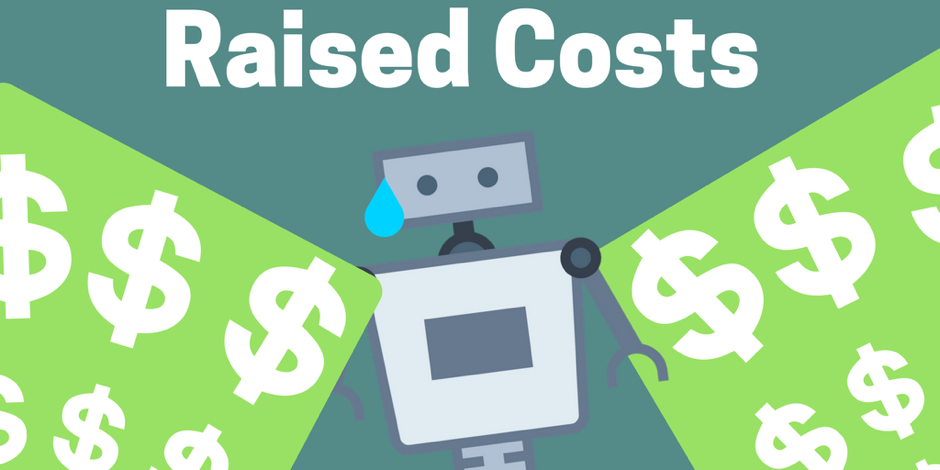
#6 Raised costs
ISP’s are looking to add a charge for networking access, essentially splitting the web into ‘fast lanes’ and ‘slow lanes’. The cost of this is having to pay your internet service provider for access to certain online services, or selecting certain ‘packages’ which align with your business needs, not unlike how television splits its services with basic, cable and sports packages. Unfortunately, that might be the tip of the iceberg for what it could cost businesses.
Consider a business with remote based employee workforce, each using separate ISP’s. For this scenario, maximizing efficiency is often priority #1. Without net neutrality, your remote workers’ potential to work efficiently are complicated. Here’s an idea for some of the options you may have to consider:
- Pay up each employee’s ISP to allow equal access to the services they require, dependent on each ISP’s terms of use and what is needed for the business.
- Force your employees to all use the same ISP at home and at work.
- Limit your choice of staff to those with your selected ISP.
Essentially, if net neutrality is scrapped, the cost of using the internet is likely to increase. If your business model relies on the internet in any shape or form, it might be time to think about how these costs could impact your business.

#7 Slowdowns
Currently, there’s no telling how each ISP will categorize their ‘packages’, and which model your business could fall under. Let’s assume the worst, and say that your organization has been categorized as requiring a ‘premium’ connection. If your company isn’t willing, or can’t afford the costs of being on this service, anyone accessing your site would be subjected to either throttled data or a complete inability to access the site until an upfront fee is paid by the user.
Let’s also assume that your business relies on a VoIP service to communicate with employees and clients. If your selected service does not support your chosen VoIP, expect unreliable connections, frustrating slowdowns or a complete loss of options for which service you or your clients can use.
If this is all starting to sound like a farfetched monopolized dystopia, take a look at what happened between the VoIP service Vonage and a North Carolina ISP or Verizon running “tests” on throttling data. This is happening in a time where doing so violates the law. Imagine a world where ISP’s reign free to select which services they support, regardless of its impact on your business.
It’s a safe estimate that no-one is immune to the threat of ISP slowdowns. In a world without net neutrality, nothing stops your competitors from paying ISP companies to favor their service over yours. This trend could cause an endless game of cat and mouse between competing businesses and various ISP’s, with the only real outcome being increased costs, slower connection speeds and partial or total loss of online services.

#8 Confusing marketing
Reduced access to sites could make analyzing your business data more difficult, as losing net neutrality could muddy the waters for which demographics your company tracks and targets.
In a world where your services might not be available to everyone equally, you might have to consider if your targeted clients would be able to reliably access your services. This could introduce a whole new parameter for marketing your services online. Consider the preparations of your marketing needs without net neutrality, as your online services might be off the table for clients using an ISP unaligned with your organization.
Without net neutrality, there’s a strong possibility that ISP’s will be selling their users’ browsing data, without the need for a user’s consent. Companies who are willing to front the costs for this might have access to some useful marketing data, but consider how there’s nothing stopping the ISP’s from tracking you, and sharing that data with your competitors.
So, are we all doomed? Well, not exactly. Google, Amazon, Facebook, Atlassian, Bitbucket, Dropbox, Github, Mozilla, Netflix, SourceForge, Stack Overflow and Twitter are amongst some of the companies opposed to scrapping net neutrality. For now, nothing changes, but the future is uncertain. So, what can you do about it? Well, here’s a list of 10 million peopleasking themselves that same question.
